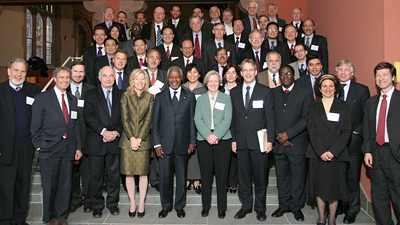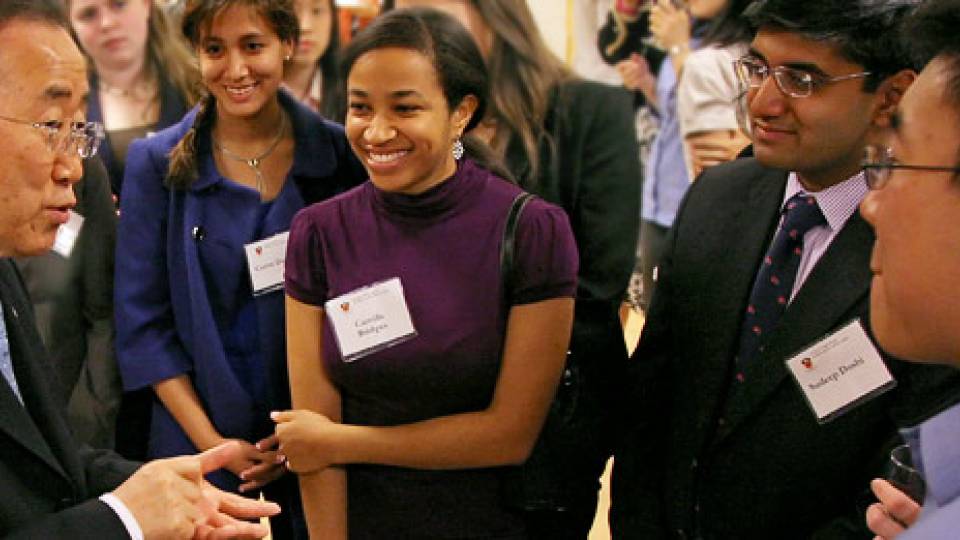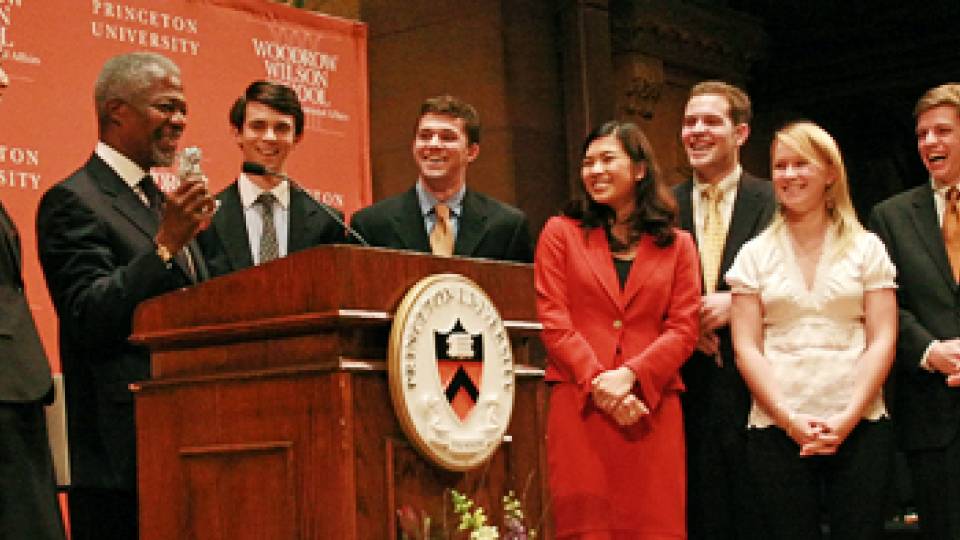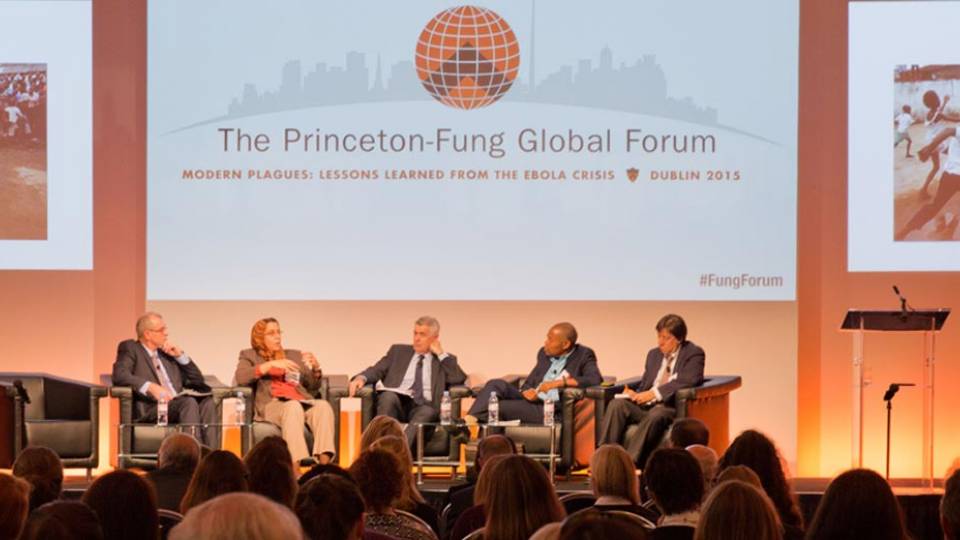United Nations Secretary-General Kofi Annan and an international group of university leaders and scholars convened at Princeton for a Feb. 14-15 colloquium examining the benefits that higher education institutions bring to society.
The second annual Secretary-General's Global Colloquium of University Presidents, chaired by Annan, brought together representatives of some 20 institutions from around the world. The attendees explored common issues facing leading international universities and solutions to global public policy challenges by focusing on two topics: "The Social Benefits of the Research University in the 21st Century" and "Innovative Sources of Funding for Public Goods."
Annan created the colloquium to enhance the United Nations' relationships with universities, to seek the expertise of scholars on major problems facing the world and to examine key challenges in educating future generations of global leaders.
"The colloquium served two important purposes -- to bring together university presidents from all over the world so that we have an opportunity to get to know each other better and to explore common problems that we face," Princeton President Shirley M. Tilghman said following the event.
Tilghman chaired the sessions focused on universities' societal benefits, leading wide-ranging discussions that included representatives of institutions from the United States, India, Australia, Korea, Belgium, France, Turkey, Mexico, China, Argentina, Palestine, Thailand, Germany, Uganda, South Africa, Israel and England.

"It is well understood that universities provide a private good to the students who graduate from them, but it is less appreciated that universities also serve a public good," Tilghman said. Responding to a challenge from Annan, the university leaders discussed ways for better communicating the value that higher education offers to society, including solving real-world problems.
Tilghman noted that universities serve society by producing an educated citizenry "in both the narrow sense of producing individuals technically trained in medicine, law, engineering, architecture, etc., as well as the more general sense of educating individuals who are broadly knowledgeable about the world and have the ability to think critically."
"They also generate new knowledge and understanding; create social mobility; provide 'safe havens' where ideas and issues can be debated without fear; both protect and conserve the cultural traditions of their societies and add to them by the support of the arts; and promote international understanding through student exchanges and courses in international and regional affairs," she said.
"These 'goods' play out differently, and with different emphasis, in different countries, and this was helpful to understand. On the other hand, there was general agreement about a lot of issues," Tilghman said.
The colloquium will produce a report summarizing the major findings and recommendations that reflect the views expressed during the meetings.
"We intend to prepare a document that captures both the agreement and the differences," Tilghman said. "Given that every university needs to defend and explicate the important roles that it plays in society, this is a very good outcome of the meeting."
Nobel laureate economist Joseph Stiglitz of Columbia University delivered the colloquium's keynote address Feb. 14 on "Innovative Ways for Financing Global Public Goods," the other main theme of the gathering. Kemal Dervis, administrator of the United Nations' global development network, chaired a series of talks among faculty experts from the participating universities that addressed the economic and political merits of various public funding proposals.
In addition to Princeton, sponsoring institutions included Columbia, New York and Yale universities, the University of Pennsylvania and the Andrew W. Mellon Foundation.



